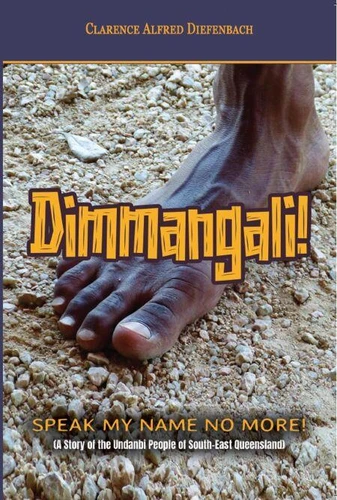Dimmangali - Speak My Name No More
Par :Formats :
Disponible dans votre compte client Decitre ou Furet du Nord dès validation de votre commande. Le format ePub est :
- Compatible avec une lecture sur My Vivlio (smartphone, tablette, ordinateur)
- Compatible avec une lecture sur liseuses Vivlio
- Pour les liseuses autres que Vivlio, vous devez utiliser le logiciel Adobe Digital Edition. Non compatible avec la lecture sur les liseuses Kindle, Remarkable et Sony
 , qui est-ce ?
, qui est-ce ?Notre partenaire de plateforme de lecture numérique où vous retrouverez l'ensemble de vos ebooks gratuitement
Pour en savoir plus sur nos ebooks, consultez notre aide en ligne ici
- FormatePub
- ISBN978-1-922792-47-1
- EAN9781922792471
- Date de parution15/10/2022
- Protection num.pas de protection
- Infos supplémentairesepub
- Éditeuraspg
Résumé
DIMMANGALI is set in the early era of white settlement in South-East Queensland, between 1820 and 1842. It tells the story of Buruda, a proud aboriginal manager of the Undanbi people, custodians of the lands around Caloundra, and his leadership at this time. To these people, the land was a spiritual entity that gave life to all - humans and animals, and plants. The proponents of this philosophy could not help living each day in harmony with the natural rhythms of the earth.
The Unani believed the white men to be macaron, spirits who had not taken the proper path of being reborn as children, and some of the surrounding peoples had even befriended a few of them. But as increasing numbers of macaron pillaged their forests and depleted their animal numbers, the macaroni presence became more sinister.
The Unani believed the white men to be macaron, spirits who had not taken the proper path of being reborn as children, and some of the surrounding peoples had even befriended a few of them. But as increasing numbers of macaron pillaged their forests and depleted their animal numbers, the macaroni presence became more sinister.
DIMMANGALI is set in the early era of white settlement in South-East Queensland, between 1820 and 1842. It tells the story of Buruda, a proud aboriginal manager of the Undanbi people, custodians of the lands around Caloundra, and his leadership at this time. To these people, the land was a spiritual entity that gave life to all - humans and animals, and plants. The proponents of this philosophy could not help living each day in harmony with the natural rhythms of the earth.
The Unani believed the white men to be macaron, spirits who had not taken the proper path of being reborn as children, and some of the surrounding peoples had even befriended a few of them. But as increasing numbers of macaron pillaged their forests and depleted their animal numbers, the macaroni presence became more sinister.
The Unani believed the white men to be macaron, spirits who had not taken the proper path of being reborn as children, and some of the surrounding peoples had even befriended a few of them. But as increasing numbers of macaron pillaged their forests and depleted their animal numbers, the macaroni presence became more sinister.



